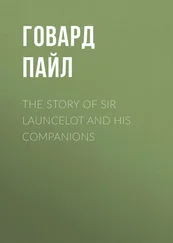Jean Plaidy - Murder Most Royal - The Story of Anne Boleyn and Catherine Howard
Здесь есть возможность читать онлайн «Jean Plaidy - Murder Most Royal - The Story of Anne Boleyn and Catherine Howard» весь текст электронной книги совершенно бесплатно (целиком полную версию без сокращений). В некоторых случаях можно слушать аудио, скачать через торрент в формате fb2 и присутствует краткое содержание. Жанр: Старинная литература, на русском языке. Описание произведения, (предисловие) а так же отзывы посетителей доступны на портале библиотеки ЛибКат.
- Название:Murder Most Royal: The Story of Anne Boleyn and Catherine Howard
- Автор:
- Жанр:
- Год:неизвестен
- ISBN:нет данных
- Рейтинг книги:3 / 5. Голосов: 1
-
Избранное:Добавить в избранное
- Отзывы:
-
Ваша оценка:
- 60
- 1
- 2
- 3
- 4
- 5
Murder Most Royal: The Story of Anne Boleyn and Catherine Howard: краткое содержание, описание и аннотация
Предлагаем к чтению аннотацию, описание, краткое содержание или предисловие (зависит от того, что написал сам автор книги «Murder Most Royal: The Story of Anne Boleyn and Catherine Howard»). Если вы не нашли необходимую информацию о книге — напишите в комментариях, мы постараемся отыскать её.
Murder Most Royal: The Story of Anne Boleyn and Catherine Howard — читать онлайн бесплатно полную книгу (весь текст) целиком
Ниже представлен текст книги, разбитый по страницам. Система сохранения места последней прочитанной страницы, позволяет с удобством читать онлайн бесплатно книгу «Murder Most Royal: The Story of Anne Boleyn and Catherine Howard», без необходимости каждый раз заново искать на чём Вы остановились. Поставьте закладку, и сможете в любой момент перейти на страницу, на которой закончили чтение.
Интервал:
Закладка:
She was off the seat, as though distrusting his proximity. She threw herself onto the grass near the pond and looked into still waters at her own reflection, a graceful feminine Narcissus, her hair touching the water.
“No!” she said imperiously, as he would have risen: “You stay there, and mayhap I will tarry awhile and talk to you.”
He did not understand himself. The joke should have been done with ere this. It was time to explain, to have her on her knees craving forgiveness for her forwardness. He would raise her and say: “We cannot forgive such disrespectful treatment of your sovereign. We demand a kiss in payment for your sins!” But he was unsure; there was that in her which he had never before discovered in a woman. She looked haughty enough to refuse a kiss to a king. No, no! he thought. Play this little game awhile.
She said: “The French are an interesting people. I was fortunate there. My friend was Madame la Duchesse D’Alencon, and I count myself indeed happy to have such a friend.”
“I have heard tales of her,” he said.
“Her fame travels. Tell me, have you read Boccaccio?”
The King leaned forward. Had he read Boccaccio! Indeed he had, and vastly had the fellow’s writing pleased him.
“And you?” he asked.
She nodded, and they smiled at each other in the understanding of a pleasure shared.
“We would read it together, the Duchess and I. Tell me, which of the stories did you prefer?”
Finding himself plunged deep into a discussion of the literature of his day, Henry forgot he was a king, and an amorous king at that. There was in this man, in addition to the coarse, crude, insatiable sensualist, a scholar of some attainment. Usually the sensualist was the stronger, ever ready to stifle the other, but there was about this girl sitting by the pond a purity that commanded his respect, and he found he could sit back in his seat and delight in her as he would in a beautiful picture or piece of statuary, while he could marvel at her unwomanly intellect. Literature, music and art could have held a strong position in his life, had he not in his youth been such a healthy animal. Had he but let his enthusiasm for them grow in proportion to that which he bestowed on tennis, on jousting, on the hunting of game and of women, his mind would assuredly have developed as nobly as his body. An elastic mind would have served him better than his strong muscles; but the jungle animal in him had been strong, and urgent desires tempered by a narrow religious outlook had done much to suppress the finer man, and from the mating of the animal and the zealot was born that monster of cruelty, his conscience. But that was to come; the monster was as yet in its infancy, and pleasant it was to talk of things of the mind with an enchanting companion. She was full of wit, and Marguerite of Alencon talked through her young lips. She had been allowed to peep into the Heptameron —that odd book which, under the influence of Boccaccio, Marguerite was writing.
From literature she passed to the pastimes of the French court. She told of the masques, less splendid perhaps than those he indulged in with such pleasure, but more subtle and amusing. Wit was to the French court what bright colors and sparkling jewels were to the English. She told of a play which she had helped Marguerite to write, quoting lines from it which set him laughing with appreciative merriment. He was moved to tell her of his own compositions, reciting some verses of his. She listened, her head on one side, critical.
She shook her head: “The last line is not so good. Now this would have been better...” And so would it! Momentarily he was angered, for those at court had declared there never were such verses written as those penned by his hand. From long practice he could pretend, even to himself, that his anger came from a different cause than that from which it really sprang. Now it grew—he assured himself—not from her slighting remarks on his poetry, but from the righteous indignation he must feel when he considered that this girl, though scarcely out of her childhood, had been exposed to the wickedness of the French court. Where he himself was concerned he had no sense of the ridiculous; he could, in all seriousness, put aside the knowledge that even at this moment he was planning her seduction, and burn with indignation that others—rakes and libertines with fancy French manners—might have had similar intentions. Such a girl, he told himself, smarting under the slights which she, reared in that foreign court, had been able to deliver so aptly, should never have been sent to France.
He said with dignity: “It grieves me to think of the dangers to which you have been exposed at that licentious court presided over by a monarch who...” His voice failed him, for he pictured a dark, clever face, a sly smile and lips which had referred to him as “My prisoner.”
She laughed lightly. “The King of France is truly of an amorous nature, but never would I be a king’s mistress!”
It seemed to him that this clever girl then answered a question which he had yet to ask. He felt worsted, and angry to be so.
He said severely: “There are some who would not think it an indignity to be a king’s mistress, but an honor.”
“Doubtless there are those who sell themselves cheaply.”
“Cheaply!” he all but roared. “Come! It is not kingly to be niggardly with those that please.”
“I do not mean in worldly goods. To sell one’s dignity and honor for momentary power and perhaps riches—that is to sell cheaply those things which are beyond price. Now I must go into the house.” She stood up, throwing back her hair. He stood too, feeling deflated and unkingly.
Silently he walked with her from the rose garden. Now was the time to disclose his identity, for it could not much longer be kept secret.
“You have not asked my name,” he said.
“Nor you mine.”
“You are the daughter of Sir Thomas Boleyn, I have gathered.”
“Indeed, that was clever of you!” she mocked. “I am Anne Boleyn.”
“You still do not ask my name. Have you no curiosity to know it?”
“I shall doubtless learn in good time.”
“My name is Henry.”
“It is a good English name.”
“And have you noticed nothing yet?”
She turned innocent eyes upon him. “What is there that I should have noticed?”
“It is the same as the King’s.” He saw the mockery in her eyes now. He blurted out: “By God! You knew all the time!”
“Having once seen the King’s Grace, how could one of his subjects ever forget him?”
He was uncertain now whether to be amused or angry; in vain did he try to remember all she had said to him and he to her. “Methinks you are a saucy wench!” he said.
“I hope my sauciness has pleased my mighty King.”
He looked at her sternly, for though her words were respectful, her manner was not.
“Too much sauce,” he said, “is apt to spoil a dish.”
“And too little, to destroy it!” she said, casting down her eyes. “I had thought that Your Majesty, being a famous epicure, would have preferred a well-flavored one.”
He gave a snort of laughter and put out a hand which he would have laid on her shoulders, but without giving him a glance she moved daintily away, so that he could not know whether by accident or design.
He said: “We shall look to see you at court with your sister.”
He was unprepared for the effect of those words; her cheeks were scarlet as her dress, and her eyes lost all their merriment. Her father was coming across the lawn towards them; she bowed low and turning from him ran across the grass and into the castle.
“You have a beautiful daughter there, Thomas!” exclaimed the King. And Thomas, obsequious, smiling, humbly conducted Henry into Hever Castle.
Читать дальшеИнтервал:
Закладка:
Похожие книги на «Murder Most Royal: The Story of Anne Boleyn and Catherine Howard»
Представляем Вашему вниманию похожие книги на «Murder Most Royal: The Story of Anne Boleyn and Catherine Howard» списком для выбора. Мы отобрали схожую по названию и смыслу литературу в надежде предоставить читателям больше вариантов отыскать новые, интересные, ещё непрочитанные произведения.
Обсуждение, отзывы о книге «Murder Most Royal: The Story of Anne Boleyn and Catherine Howard» и просто собственные мнения читателей. Оставьте ваши комментарии, напишите, что Вы думаете о произведении, его смысле или главных героях. Укажите что конкретно понравилось, а что нет, и почему Вы так считаете.












